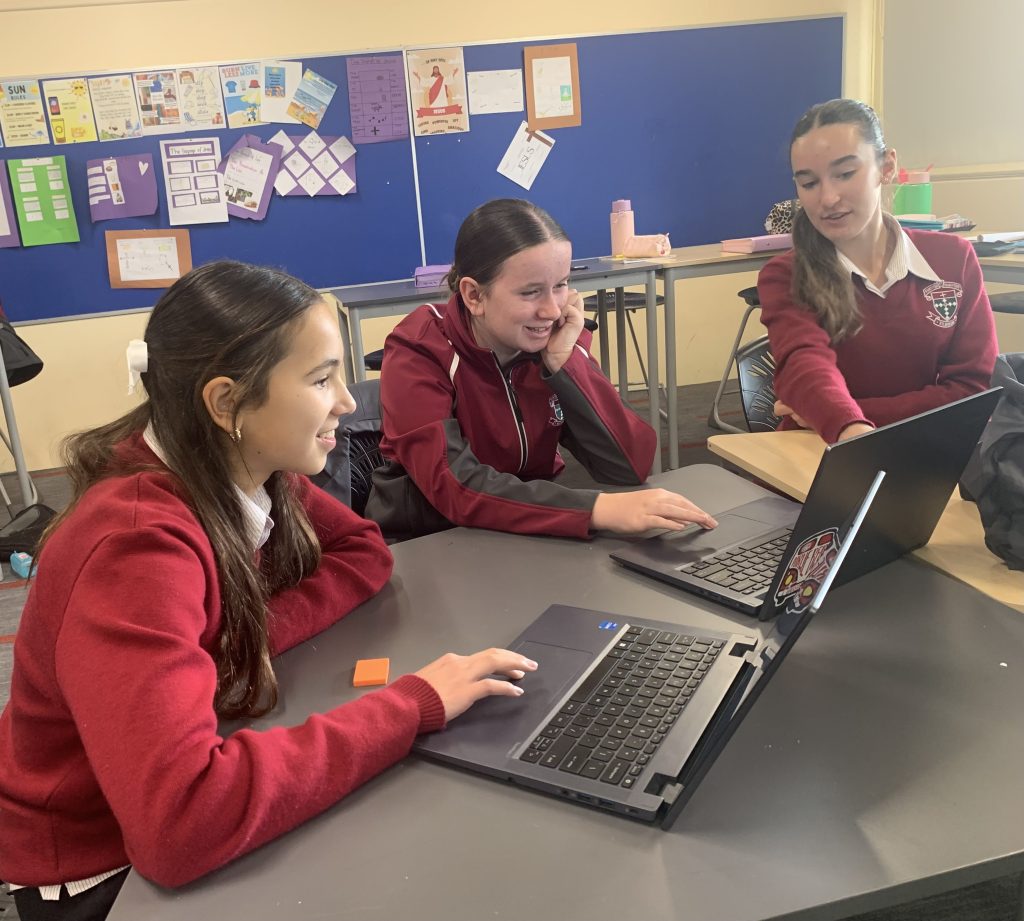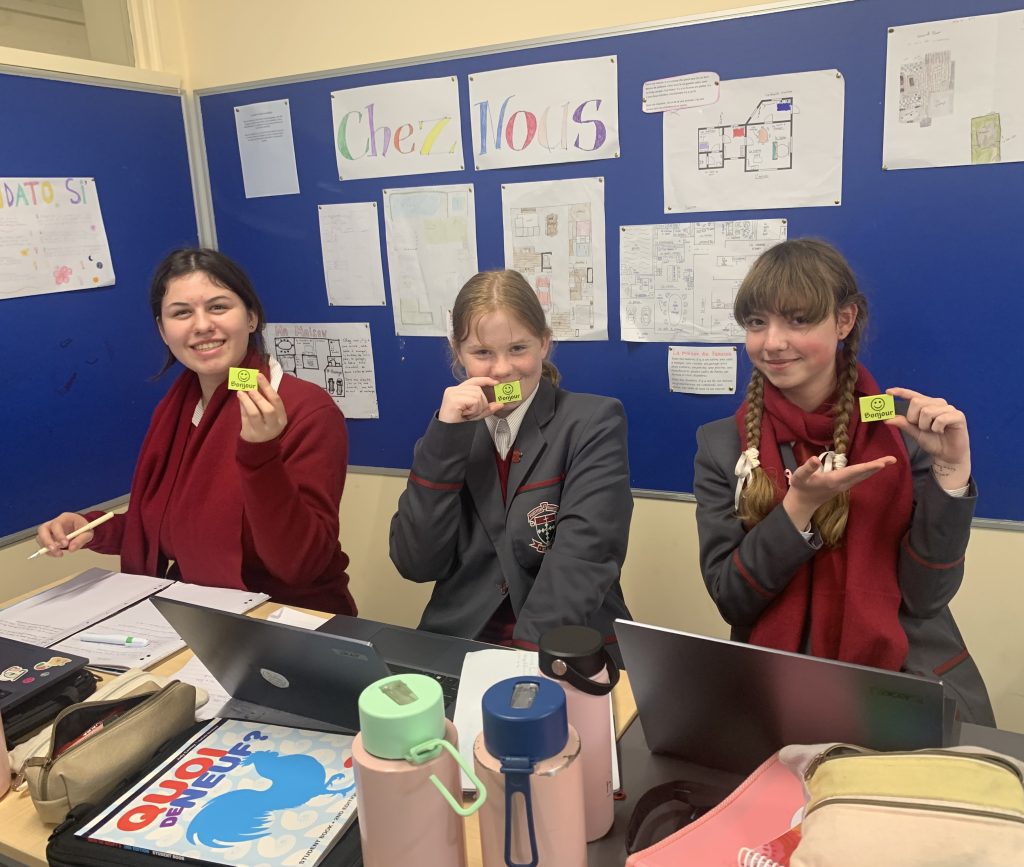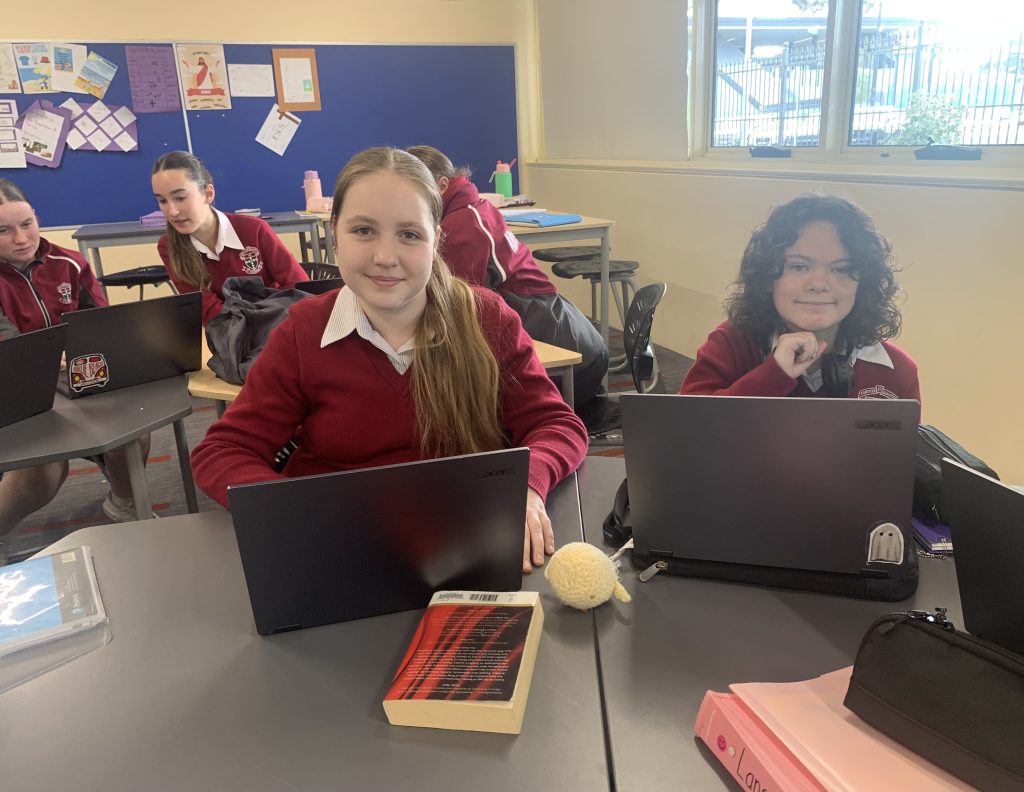Languages
La Vie Scolaire En Français: A Fun French Vocabulary Challenge on School Life!
Our Year 8 French students recently had a blast learning vocabulary about la vie scolaire (school life) through a fun and interactive Quizlet challenge.
Working in teams, students competed to match French words with their English meanings, such as la cantine (canteen), le professeur (teacher) and la récréation (recess). The classroom was filled with excitement and team spirit as students raced to find the correct answers and help their team win.
This playful approach helped students build their vocabulary, practise spelling, and gain confidence in using French, all while having fun!
Bravo à toutes les élèves!
Below are some comments from some students:
I very much enjoy studying Y8 French alongside my classmates… As the unit has progressed, I have learnt countless new French expressions and vocabulary about school life, or ‘la vie scolaire’. Studying French at Kilbreda College has been an exceptionally rewarding experience so far, and I would certainly encourage anyone considering it to give it a try!
Matilda Gray
Year 8
Today’s class was good. The Quizlet was sort of exciting, and the knowledge about saying ‘the’ in French was definitely useful.
Avery-Evelyn Keech
Year 8
Today in French, we explored vocabulary related to school life. We practised using la, le, and les to talk about things like le professeur, la salle de classe and les devoirs. It was fun seeing how these little words, articles, help us describe everyday school life in French! The Quizlet Challenge was a great way to test our memory and keep things competitive; everyone was really into it! Some classmates said it helped them remember new words faster. Overall, it was a really useful lesson that made French learning feel more connected to our daily routines.
Sofiia Pototska
Year 8



Senior Italian Students Take a Sustainable Bite into Cucina Povera
As part of their final unit on environmental issues, our senior Italian students have been exploring how traditional food culture can inspire more sustainable choices today. With a focus on Italy’s cucina povera – a rustic, resourceful cooking style rooted in using simple, seasonal and local ingredients – students discovered how the past holds valuable lessons for the future of food.
The class investigated the environmental impact of food production and set out to design meals that are affordable, nutritious and gentle on the planet. This meant avoiding highly processed ingredients, choosing locally grown vegetables, reducing waste, and celebrating the beauty of simplicity.
Inspired by their research, students collaborated to create their own cucina povera-inspired recipe, “Pasta Con Cavolfiore ePangrattato Alle Erbe” (pasta with cauliflower and herbed breadcrumbs). This dish uses just a few humble ingredients: seasonal cauliflower, pasta, herbs from the school garden and leftover bread transformed into golden toasted crumbs. They all combined to deliver a richly-flavoured, minimal-waste and low-carbon footprint recipe.
Not only was the dish easy to prepare and cost-effective, but it also offered a delicious reminder that sustainable eating doesn’t mean sacrificing taste. Instead, it’s about thoughtful choices, creativity, and making the most of what we already have.
The students presented their recipe and reflections in Italian, demonstrating not only their linguistic growth but also a deeper intercultural and environmental awareness. Bravissimi!
Below are the links to make vegetarian and vegan pastas with seasonal ingredients and low environmental impact. (To switch to the English version of the website, just switch flags in the top right hand corner).
Giovanni Di Fabrizio
Learning Leaders: Languages


